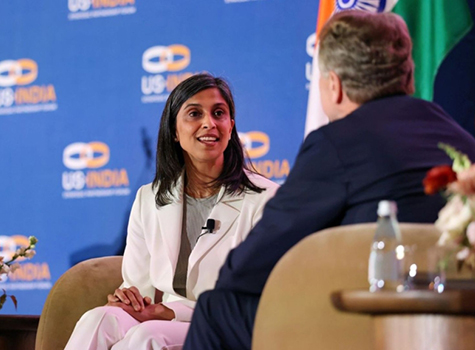
Everyone has heard of home, auto and perhaps short-term disability insurance. We always have our fingers on these. We often spend time shopping around, understand what our needs are and then find the best fit for them by talking to people who offer such products. We change suppliers of such products if we don’t like what they are doing and go shopping for something else.
In other words, we are usually on top of such issues. We make sure all or at least most of such risks are covered.
But in life there are many other issues we face which demonstrate similar concerns or risks and we may not be doing our best to mitigate them. Health is certainly one of them. We certainly don’t get too concerned about it when we are young, but it does come to haunt us in later life. Our investments are also other matters where, perhaps, we are not as careful. Generally, we don’t pay as much attention as we might to insurance needs.
Often, we just find a reasonably large firm, move our investments to them and hope that they will produce good results. Granted that hope is eternal, but sometimes, especially in investments, it has a short life.
The concept of risk became painfully clear in 2022, as the latest example, when after years of abnormally low interest rates, the rapid increase of interest rates by Federal Reserve disrupted equity and fixed income portfolios alike. Needless to say, this has happened before, many times in fact, over the last 40 or 50 years that we all would remember. Remember 2007 and 2008 when the economy and markets were greatly disturbed?
 As I tried to explain above, everything we do in life has risks. Being born, playing at home, walking/driving on the street or even crossing the streets; all these simple, everyday life examples have risks associated with them but we either just don’t pay attention or don’t think about it from the risk point of view. Once this is well understood, it should not stop us from doing whatever we wish to do in life because absolutely nothing is risk-free.
As I tried to explain above, everything we do in life has risks. Being born, playing at home, walking/driving on the street or even crossing the streets; all these simple, everyday life examples have risks associated with them but we either just don’t pay attention or don’t think about it from the risk point of view. Once this is well understood, it should not stop us from doing whatever we wish to do in life because absolutely nothing is risk-free.
Investment could be much more serious than that because at times that is the only vehicle we have to secure our futures, especially retirement. It also helps if we know and understand our own risk tolerance levels under all circumstances. So, let’s look at what is involved.
Most investors or their managers normally allocate a securities portfolio across three major asset classes. Namely: 1) cash and cash equivalent which are mainly fluid or liquid. 2) Fixed income which includes bonds and notes of various duration; this one is semi-fluid or liquid because there is some time and penalty involved to make it fully liquid and 3) Equities and market capitalization which are long-term propositions.
These three will constitute your entire asset base and a mix of each will depend on where you are in your life financially and your appetite for risk.
Risk of Cash and Cash Equivalent
What kind of risks can there be in a situation where your assets are sitting in full cash? Have you heard friends say: Oh, I wish I had gone somewhere else where I could get a better interest rate? That is risk talk. Bank rates always change and nothing will be the best for a long time and know that for sure, especially when you lock in your money even for a short time, there is risk involved of missing something else. This is called bank rate or interest rate risk. Sometimes, bank rates fluctuate on their own too.
Many times, where you invest, even when the interest rates are similar, can create some risk. Investing in Government Agencies or in short-term corporate securities is not the same because their credit ratings could be different. These are known as credit risks.
Inflation can play a major part. When invested into a fixed rate instrument, what extra money you get in the form of interest may not buy the same goods as it would have at the beginning of that investment. This is called inflation risk. It is very difficult to completely avoid.
Risks of Fixed Income Investments
Bonds run the gamut from government, agency and municipal securities to investment grade corporate and high-yield securities. Their risk factors are very similar to the ones described above. It is always suggested to pay attention to the terms, clauses, covenants and other details. The risks for this class are similar to the class of cash and cash-equivalent, but there are more. Bonds are medium to long-term duration, generally from 2 years to 10 or more years.
Hence interest rate risk and call risks are the main factors that come into play. Interest rates can change during the “locked” phase of the bond, which can affect the value of the bond.
Call risk is always there when a bond is purchased because the issuer has the right to call the bond prematurely, especially if the interest rates are falling, and abruptly disturb your apple-cart.
Risks with Equities
Equities have a whole litany of risks and when done properly, they bring a lot of joy and pleasure or on occasion many displeasures and heartaches as well. I will just mention a few here; Market risks: General market declines due to mismanagement or due to geo-political reasons and we suffer. Company specific risks: all points to very bad management and nobody else can be blamed for it.
What I have given here is just a few examples of these risks. This list is long. To manage these risks, one thing is for sure and that is not only must we comprehend what they are but even more importantly, understand what your risk tolerance make-up is and how you react to those risks. Risks can never be avoided completely.
Everyone is different and will react differently but knowing and understanding yourself, and I might add your spouse who should be your partner in all such endeavors, is very important and necessary. It will not happen overnight but serious attempts need to be made. Seek help if necessary.
These efforts will create a certain direction for you that will help you avoid pitfalls and serious mistakes in the future. Like they always say, “know thyself.” It is easier said than done.
Mo Vidwans is an independent, board certified financial planner. For details visit, vidwansfinancial.com, call 734-476-0579 or write to: mvfinancial@yahoo.com



